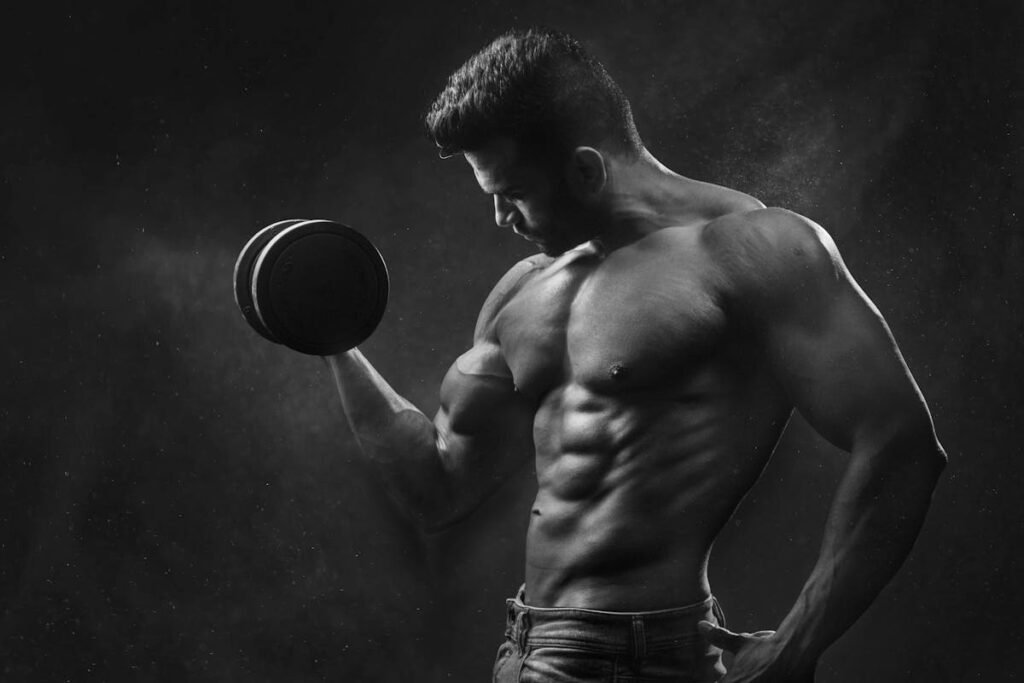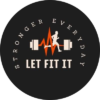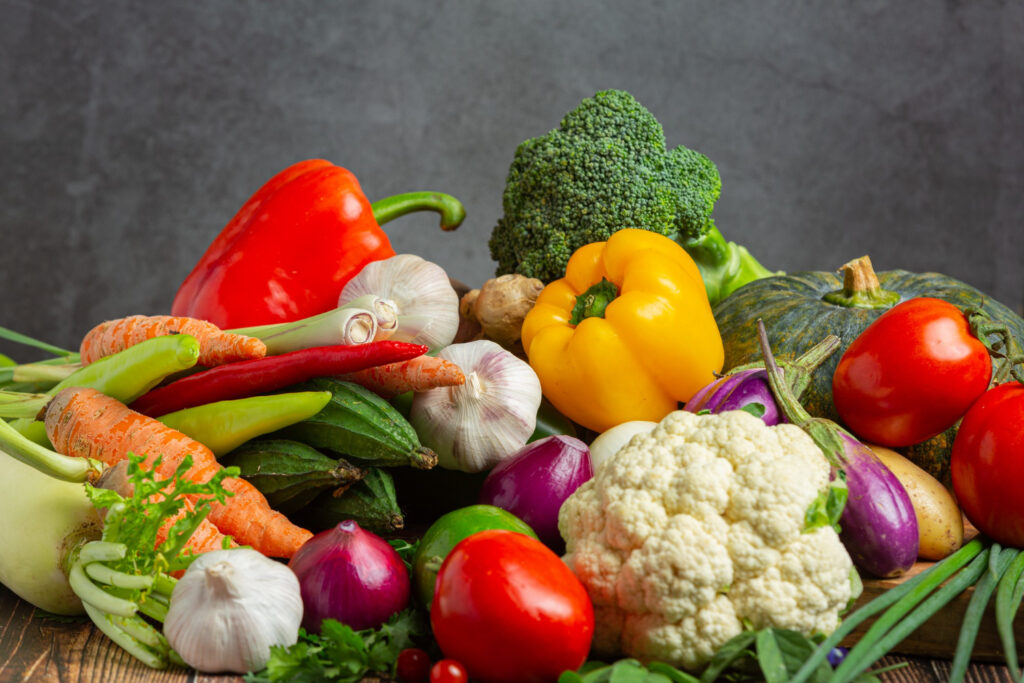It’s funny how people react as if you’ve just told them you’re training for the Olympics with just a fork and a dream when someone states they’re trying to gain muscle on a vegetarian diet. The incredulity in their eyes is almost visible, like vegetarian bodybuilding is some kind of mythical challenge only superheroes attempt.
But, where do you get your protein? You’re going to lose gains. You can’t build serious muscle without chicken.
Honestly? It gets old fast.
The truth is, vegetarian bodybuilding isn’t some strange, mystical experiment. It’s not a shortcut. It’s not a compromised version of real bodybuilding. It’s just a different route, and for many people, it’s actually the smoother, cleaner, and more sustainable route. Let’s get into it.
Why Vegetarian Bodybuilding Works Without Meat
Some people choose vegetarian bodybuilding for moral reasons. Others want to eat cleaner. Some are tired of the heavy, bloated feeling that comes from three daily servings of meat. And a lot of people are simply curious.
But here’s something many don’t realize:
In fact, a vegetarian bodybuilding diet can enhance cardiovascular health, inflammatory management, digestion, and recuperation.
Antioxidants abound in plants. They aid in the management of oxidative stress, which is essentially the internal disorder that follows strenuous exercise. Less chaos = faster recovery. You know what else plants do?
They give you:
Better micronutrient coverage
Higher fiber (which most bodybuilders don’t get enough of)
And honestly, modern bodybuilding diets rely so heavily on supplements that many people forget food is the real foundation. Being vegetarian doesn’t mean being protein-deficient. It just means your protein sources look different, and sometimes they’re better.
Understanding the Core of Vegetarian Bodybuilding
You don’t grow muscle from protein alone.
You grow muscle from:
Enough calories
The right ratio of macros
Consistency
Recovery
Progressive overload in training
And yes, protein matters a lot, but vegetarian diets can hit the target easily when the foundations are right. Before we go deeper, here’s a genuinely important thing that most articles gloss over:
Vegetarian doesn’t mean low-protein. It means intentional-protein. This mindset shift is huge.
If you eat randomly, you’ll struggle.
If you eat strategically, you’ll grow like anyone else, sometimes even faster.
Let’s break down the building blocks in a natural, straightforward way.
Key Nutrition Principles for Vegetarian Bodybuilding
1.Best Plant-Based Protein Sources for Muscle Growth
To put it plainly, you don’t need to make every meal a six-plate buffet in order to have adequate protein on a vegetarian diet. You just need to know your go-to sources.
High-Protein Vegetarian Foods That Actually Work for Bodybuilding
Here’s the stuff that lifters use successfully:
Tofu
Tempeh
Lentils
Chickpeas
Greek yogurt (if you eat dairy)
Cottage cheese
Paneer
Black beans
Kidney beans
Peas
Edamame
Eggs (if you’re ovo-vegetarian)
Quinoa
Plant-based protein powders (pea, hemp, soy)
Whey protein, if you consume dairy
Some of these are complete proteins. Some aren’t. Doesn’t matter. You don’t need every single meal to be complete. Your total daily intake is what counts.
A quick little trick that’s worked for decades:
Lentils + rice
Beans + whole wheat tortillas
Peanut butter + whole grain bread
Quinoa + vegetables
Paneer + roti
You get a full amino acid profile without overthinking it.
2. Healthy Fats For Vegetarian Bodybuilding
Let me say something blunt:
You cannot have healthy testosterone levels without enough fat. Period. Vegetarian bodybuilders sometimes fall into the super clean eating trap and accidentally remove too much fat. Bad idea.
Healthy dietary fats help with:
Hormone production
Recovery
Overall strength output
Joint lubrication
Energy balance
Vegetarian-friendly fat sources:
Avocados
Almonds
Walnuts
Pistachios
Chia seeds
Flaxseeds
Olive oil
Sesame oil
Peanut butter
Ghee (optional)
These foods aren’t cheats. They’re performance boosters.
3. Carbohydrates That Fuel Muscle Growth on a Vegetarian Diet
You can train without carb. But you won’t train hard.
Carbs refill glycogen, which is the fuel your muscles burn during lifting. Without glycogen? Strength drops? progress slows? Workouts feel like trash. Vegetarian diets naturally lean high-carb, which is great for bodybuilding. Embrace it.
Best carbs for vegetarian lifters:
Oats
Sweet potatoes
Brown rice
Quinoa
Whole wheat pasta
Fruit (don’t fear fruit!)
Whole grain bread
Barley
Millet
Consistently releasing energy from these foods will make your workouts feel stronger, fuller, and fluid.

Vegetarian Bodybuilding’s Macro Analysis
You don’t need to obsess over every gram. But you do need to understand roughly what direction you’re moving in.
If you’re trying to build muscle:
40% carbs
30% protein
30% fats
And yes, a calorie surplus. Not a huge one. Just enough to grow 250–400 extra daily.
If you want to cut fat:
Higher protein (35–40%)
Moderate carbs
Lower fats
But don’t make the mistake of dropping carbs too low. You’ll just feel weak and miserable.
Sample Muscle-Building Vegetarian Meal Plan
Not some perfect, fancy, Pinterest-smoothie-type meal plan. Just real meals people actually eat and stick to.
Breakfast: The Muscle-Building Smoothie That Makes Life Easier
Blend:
1 scoop plant protein or whey
1 cup almond/soy milk
1 banana
2 tbsp peanut butter
½ cup oats
1 tbsp chia seeds
This is a full-bodybuilding breakfast. No nonsense.
Mid-Morning Snack Something Simple
You don’t need a gourmet bowl.
Pick one:
An apple + almond butter
Greek yogurt + walnuts
A protein bar
Small, quick, easy.
Lunch Tempeh or Paneer Stir-Fry Bowl
Quinoa or rice
Tempeh/paneer marinated
Veggies (broccoli, zucchini, carrots)
Sesame oil drizzle
Nothing complicated. Balanced. Solid.
Afternoon Snack High-Protein Crunch
Roasted chickpeas
Edamame
Peanut butter toast
Cottage cheese bowl
Get another 15–20g of protein in.
Dinner Lentil Bowl That Helps Overnight Recovery
1 cup cooked lentils
1 baked sweet potato
Spinach + kale
Tahini drizzle
Comfort food + protein + micronutrients.
Evening Snack Light and Easy
1 scoop protein
Optional: one square of dark chocolate
This helps prevent muscle breakdown overnight.
How to Avoid the Common Struggles of Vegetarian Bodybuilding
I can’t hit my protein goal.
You probably just need one more protein-focused meal. Or a shake.
I feel full before hitting calories.
Add calorie-dense foods like nut butters, dried fruits, oils.
I don’t know what to eat when I go out.
Simple: choose dishes that revolve around beans, lentils, tofu, paneer, or eggs.
People keep questioning my diet.
Ignore them. Or use their doubt as fuel literally.
Mindset Benefits of Vegetarian Bodybuilding
Being a vegetarian bodybuilder means you’re already used to doing things differently. You don’t always follow the crowd. You choose your own route.
And honestly, this mindset is powerful. Bodybuilding is already a discipline-heavy sport. Being vegetarian adds a layer of intentionality. You’re more aware of your food, your recovery, your nutrition density, all things that make you a smarter lifter. There’s something about knowing you built your physique on grains, plants, dairy, legumes… it feels clean, sustainable, and in a weird way, kind of satisfying.
Not better than others. Just aware.
Vegetarian Bodybuilders Who Prove It Works
There are countless physique athletes who follow vegetarian or mostly plant-based diets and look incredibly muscular, defined, and strong. They’re living proof that this lifestyle works when done smartly and consistently.
Final Thoughts on Vegetarian Bodybuilding
Let’s wrap this up in the most simple way possible.
You don’t need meat to build muscle.
You don’t need to fear protein deficiency.
You don’t need a perfect diet.
You don’t need 6-hour meal preps.
You don’t need to justify your choice to anyone.
You need:
Enough calories
Smart protein selections
Balanced macros
Consistency
Good sleep
Real training intensity
Vegetarian bodybuilding is not a lesser version of bodybuilding. It’s just a cleaner, sometimes smarter, often more sustainable version.
You can bulk.
You can cut.
You can maintain.
You can build an incredible, powerful, aesthetic body all without eating meat.
If anything, vegetarian bodybuilding teaches you how to be intentional instead of mindless. And trust me, intentional lifters always win in the long run.
Frequently Asked Questions About Vegetarian Bodybuilding
What does vegetarian bodybuilding mean?
Vegetarian bodybuilding means building muscle while following a vegetarian diet that excludes meat. It’s about getting enough calories and high-quality plant proteins so your body has the nutrients it needs to grow muscle.
Can you build muscle without eating meat?
Yes, multiple nutrition experts note that with careful planning and a variety of plant proteins, you can consume sufficient calories and essential amino acids to build muscle effectively on a vegetarian diet.
How much protein do vegetarian bodybuilders need?
Most athletes aiming for muscle growth benefit from around 1.6–2.2 grams of protein per kilogram of bodyweight per day, spread across meals to support muscle protein synthesis.
What are the best vegetarian protein sources for muscle building?
Top options include tofu, tempeh, lentils, chickpeas, quinoa, Greek yogurt, cottage cheese, and plant-based protein powders. A mix of these foods helps ensure complete amino acid coverage.
Do vegetarian bodybuilders need supplements?
Supplements like plant protein powders, creatine, and BCAAs can help meet protein goals and support recovery, but they aren’t mandatory if whole foods are sufficient.

